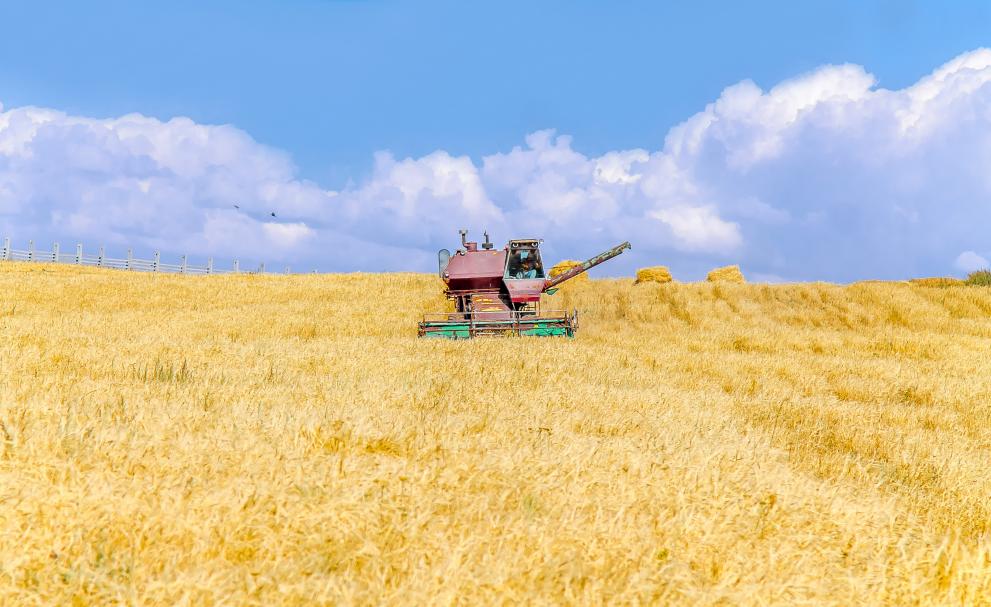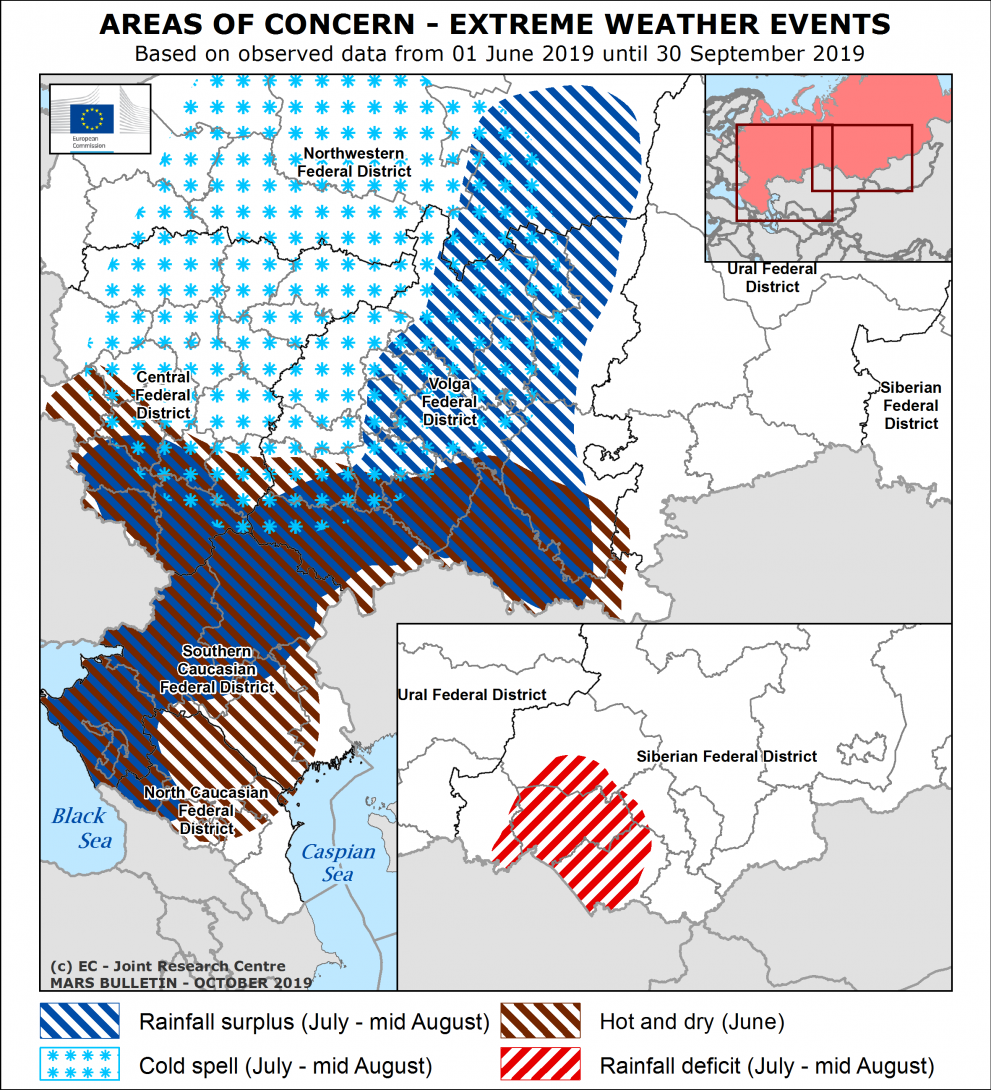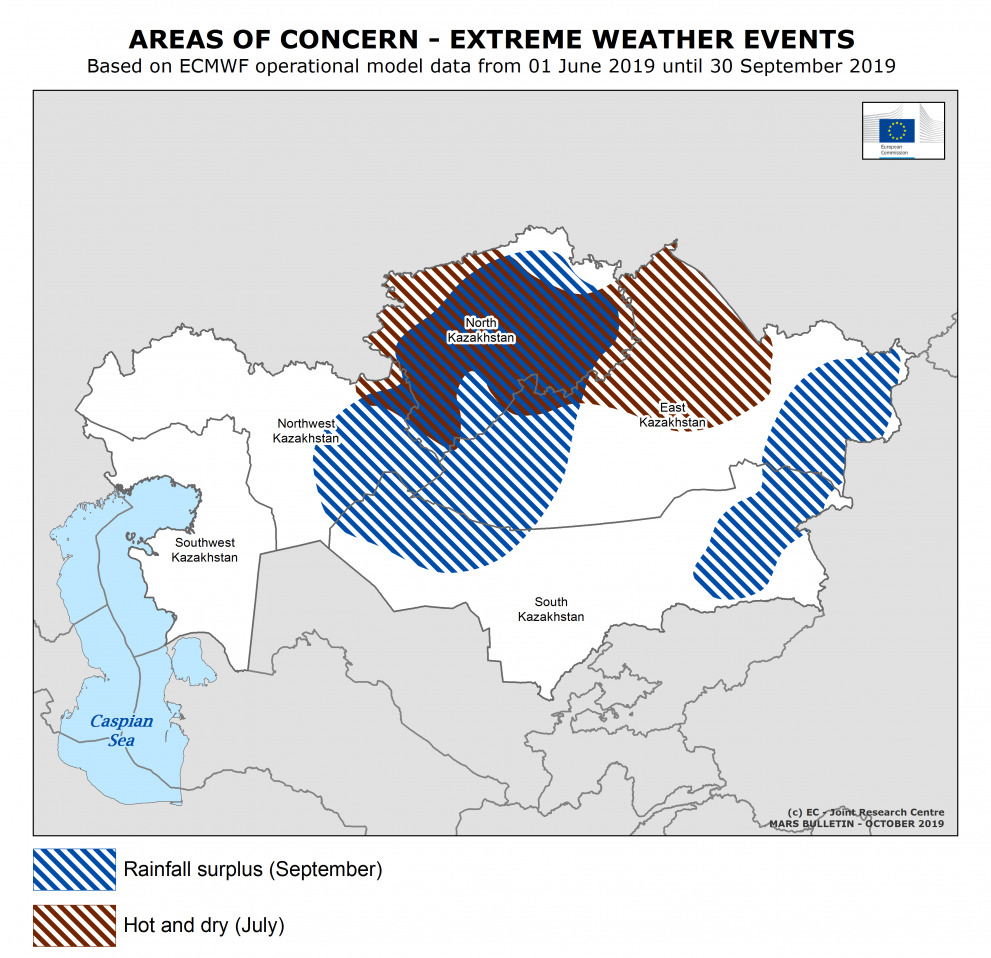
Two MARS Crop Monitoring Bulletins were published today, covering Russia and Kazakhstan.
According to the MARS Bulletin global outlook – Russia, yield expectations are above average for barley and maize.
In south-western Russia, a hot and dry May and June resulted in inadequate water supply and below-average yield potential of winter cereals.
From early July, the beneficial precipitation, accompanied by milder temperatures, generally alleviated the drought. Thanks to rainfall in the eastern and northern territories of European Russia during the flowering and grain filling of spring cereals, biomass accumulation was promising. However, frequent and abundant rain hampered the harvest of cereals in several regions.
The yield forecast for winter wheat is similar to that of the previous year, but spring wheat – and particularly spring barley – are delivering better; with yield expectations exceeding the 5-year average.
The water supply to grain maize was problematic during the vegetative period, but proved to be sufficient during the flowering and early grain-filling stages, giving a positive yield outlook at country level.

According to the MARS Bulletin global outlook – Kazakhstan, hot and dry conditions in northern regions affected spring cereal production
The harvest campaign for grain crops in Kazakhstan was largely completed by the end of September, with a general downward trend in yield due to the hot weather conditions that occurred in northern regions since July. Rainfall was scarce during July and August, when crops reached their reproductive development stages.
The outlook for spring barley and spring wheat is below average.
The main winter wheat producing areas in southern Kazakhstan benefited from adequate soil moisture during most of the growing period, and dry weather provided good conditions for ripening and harvesting.
The yield expectation for winter wheat is slightly above average.

Further information
MARS bulletins - Crop monitoring Europe
Related Content
Details
- Publication date
- 14 October 2019
